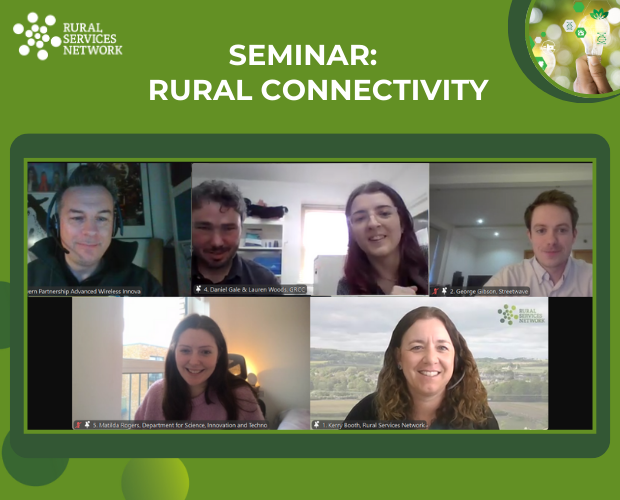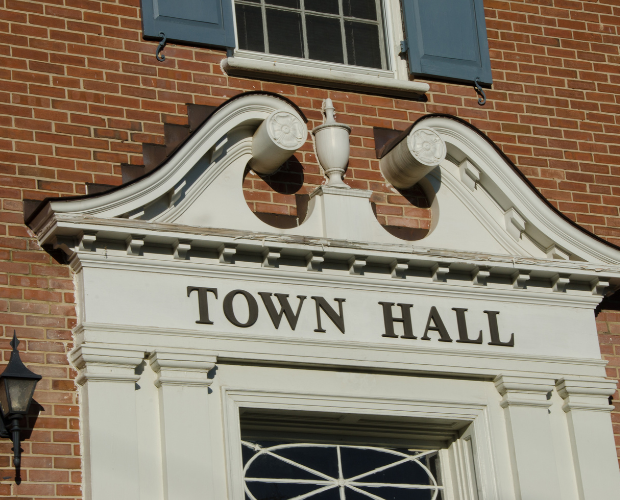T: 01822 851370 E: [email protected]
07/09/2022 - Rural Village Services Group Meeting

Notes from Inaugural Meeting of the Rural Village Services Group
Online via Zoom
Wednesday, 7th September 2022, 5pm-6pm
- You can download a copy of the agenda for this meeting here
- You can download a copy of these minutes here??
Present:- Pauline James, Sandra Morrison, Alyson Lister, Paulette Barton, David Rigby, Sue Hake, Steve Davis, Tim Herring, David Wesley, Jane Dodson, Lydia Bardsley, Sally Fullwood, Cllr John Newton (12 Parishes represented).
From RSN - Graham Biggs MBE, David Inman.
MEETING INTENTION
Graham Biggs, Chief Executive of the RSN, started the meeting by setting out the aim of the group and the overall work of the RSN and to allow member councils to ask questions about the Group. The Group at the time of the meeting had some 20 members all of whom were on free membership.
MEETING INTRODUCTION
David Inman provided an introduction to the meeting.
Most parishes had a village or large hamlet in their area but services to and from that settlement may have been declining in recent years. It is important for the RSN to understand the grassroot view of rural Parish Councils and their communities and this is why the group has been formed.
The Rural Services Network (RSN) is the national champion for rural services, providing a voice for rural communities. Rural services are coming under more and more pressure in a decade of cut- backs. The RSN feels that the Government doesn’t always consider the position relating to rural services as closely as it should, and we want to develop groupings of both rural towns and rural villages to fully understand what is happening in rural communities and be able to seek improvements. The prosperity of rural areas, rural/market towns, and rural villages very much depended on rural services.
The RSN is a membership organisation and funded by member subscriptions. As the group is being established, free membership is provided to Parish Councils however once the group is established in the future, there will be a low and affordable subscription fee.
The RSN is developing two groupings of local councils
(a) A Rural Market Towns Group - where often (but not always) these towns would have a history of being a ‘market’ town
(b) The Rural Village Services Group – of Parish Councils exploring rural villages
The Rural Market Towns Group was established previously and has a healthy membership of 220+ members currently. There is a need for the Village Group to be equally successful.
RSN – WHAT IS IT AND WHERE DID IT COME FROM?
Nearly 80% of England remaining classified as rural and that classification includes its towns and of course its villages. Approximately 20% of the English population live in those rurally classified area.
RSN are very different to NALC who have been operating since 1947. NALC act as an adviser to local councils both through the central office in London and through the County Associations (ALS). They deal with local councils in both urban and rural areas.
RSN started around 25+ years ago as SPARSE as a District Council Group looking at financial issues in rural areas. Over the years it has evolved by establishing a range of groupings representing rural services. Firstly, the group expanded to be able to support all rural principal councils, then a Rural Services Partnership was formed, including non local authority service providers such as health trusts, housing associations and national charities. A Rural Fire and Rescue Group was added and work with an existing Rural Housing Association Grouping and finally now with local councils in respect of the Rural Market Towns Group and the Rural Village Services Group.
The USP has always been rural services and campaigning for a fair deal for those services.
The RSN examines Government Strategy and policy when it is announced through a ‘Rural Lens’ for our membership to easily understand the rural implications of policy, or where there may be negative implications if rural is overlooked.
We present the thoughts we get from all our sources to DEFRA and other appropriate Government Departments. We are also part of the Rural Coalition which is made up of 13 national rural based organisations which span rural interests. The Coalition makes it possible to identify the areas where cross rural policy arguments can emerge. That should make it more difficult for government to ignore areas where this ‘consensus’ view and hopefully persuades to listen more to a script that has been identified by all the rural organisations as being critical.
Equally we act as the Secretariat to the All Party Parliamentary Group on Rural Services which we assisted in establishing. This is a Group formed of MPs and Lords from all parties who come from rural constituencies and areas. It is vital that those people are kept well informed about the rural service issues so that grass root opinion and thoughts feature prominently in their work and thoughts.
Our job must be to work with and from the rural grassroots and take the messages up to that Parliamentary level. It is for that reason that the two Local Council groups are so important.
We need want to share and explore rural good practice across Parish Councils to help support them as they deliver services and support their rural communities. It is of huge benefit to other organisations and yourselves to listen to and share similar experiences.
At this stage the 12 councils present gave a brief introduction each of their councils and its geographical position in England.
DISCUSSION
Did RSN have an overall vision of what it would like the Government to do? Yes, it did. It had prepared a campaign termed ‘Revitalising Rural’ which was a live document updated regularly setting out a number of asks of Government. Whilst it was recognised that Government was unlikely to agree to every suggestion made it provides a framework for the campaigning of the RSN.
Revitalising Rural: Realising the Vision campaign, please follow this link:
https://www.rsnonline.org.uk/revitalising-rural
Members expressed their general appreciation for the meeting and for the work being undertaken.
It was hoped to have a defined meeting on problems being encountered by young and older people in rural areas in 2023.
It will be important to work on the wider issues and to avoid any specific focus on local areas of dispute. The Group would be unable to take on issues of that nature.
In the meantime, those present agreed to act as the initial platform seeking to take the RVSG forward accepting as a group giving ‘rural intelligence’ in some areas whilst recognising that in doing that of course the Group would require considerable incremental widening to become the eventual influential and productive group that was sought.
Members would be supplied with the Revitalising Rural documentation that had been discussed.
SIGN UP TO OUR NEWSLETTER
Sign up to our newsletter to receive all the latest news and updates.









